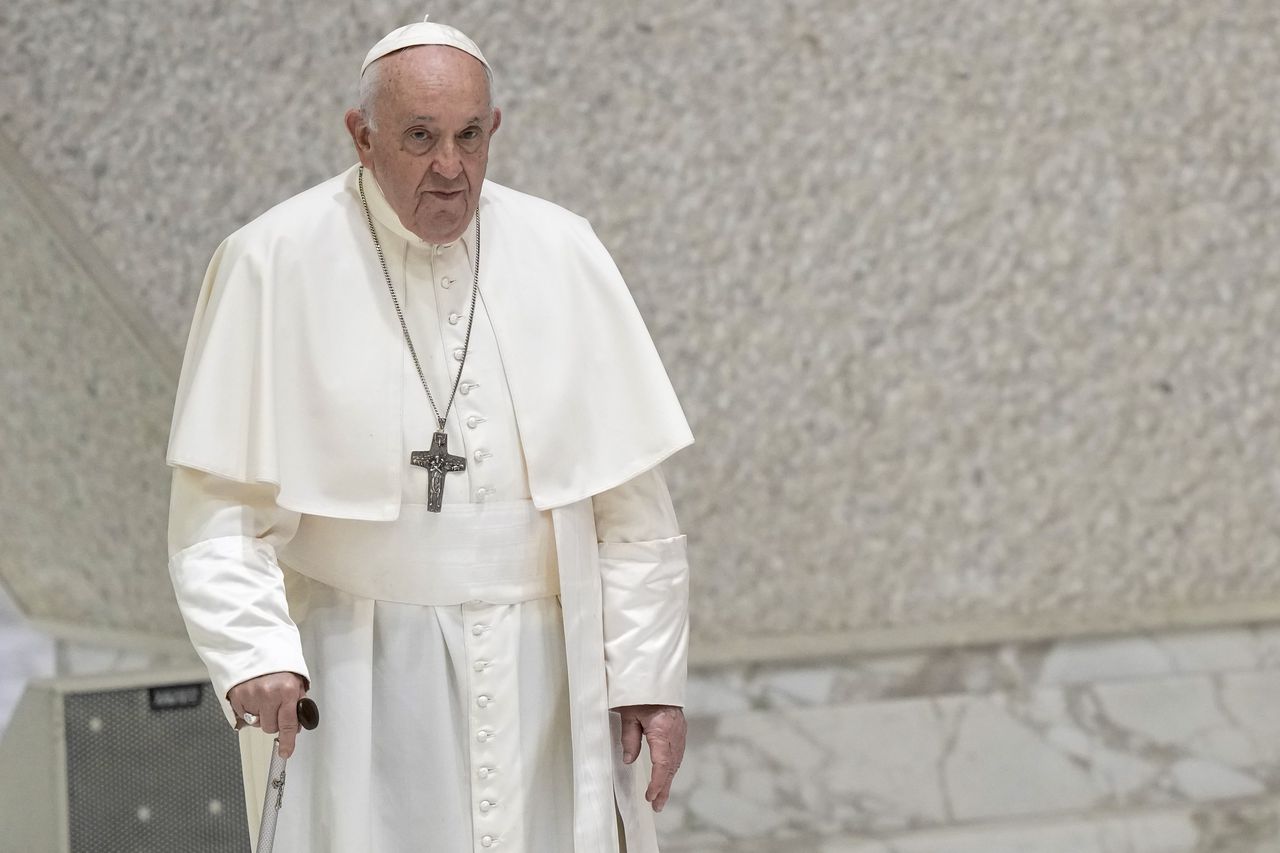Religious Leaders May Be Key to Breaking Climate Action Gridlock, Poll Suggests
This article originally appeared on Inside Climate News, a nonprofit, independent news organization that covers climate, energy and the environment. It is republished with permission. Sign up for their newsletter here.
Religious beliefs may play an important role in whether someone believes humans are warming the planet by burning fossil fuels, new polls found. The findings come as Pope Francis, the leader of the Catholic Church, released his latest papal letter, rebuking the “irresponsible lifestyle” of Westerners and chastising those who try to delay efforts to address the climate crisis or deny its very existence.
“Despite all attempts to deny, conceal, gloss over or relativize the issue, the signs of climate change are here and increasingly evident,” Francis wrote in his exhortation released Wednesday, urging world leaders to do far more to address global warming ahead of the COP28 climate talks next month. “No one can ignore the fact that in recent years we have witnessed extreme weather phenomena, frequent periods of unusual heat, drought and other cries of protest.”
But despite the pope’s strong words, the second time he has in writing sought to raise awareness about climate change, a pair of surveys released over the last two weeks found that people who strongly identify with their religious beliefs tend to dismiss the overwhelming scientific consensus that the planet is warming at an unprecedented rate and humans are behind it.
A Pew Research Center survey, released last week, found that just 44 percent of American Catholics believe in human-caused climate change, while 29 percent believe the warming climate is due to “natural patterns” and 13 percent don’t believe Earth is warming at all. A second survey, released Wednesday by the Public Religion Research Institute, found that the higher someone valued their religious beliefs, the less likely they were to believe that Earth is warming because of human activity.
Among Americans who said that religion is the most important thing in their lives, only 39 percent agreed that humans are causing global warming, that survey found, compared with 56 percent of those who said religion is one among many important things, 65 percent of those who said religion is not as important as other things and 78 percent among those who said religion is not important at all. White evangelical Protestants, it found, were the least likely of all to believe in human-caused climate change—at just 31 percent.
The findings stand in stark contrast with the pope’s message Wednesday, which called for “lucidity and honesty in order to recognize in time that our power and the progress we are producing are turning against us,” underscoring the complex ways religion intersects with personal, cultural and political identities. The findings also suggest that spiritual leaders could be key in alleviating the political gridlock that continues to stymie global climate action.
“The work of spiritual leaders around the world may be our best chance of getting hold of things,” Bill McKibben, a prominent climate activist and journalist who founded 350.org and the Third Act movement, said in his recent newsletter. “Yes, the engineers have done their job. Yes, the scientists have done their job. But it’s high time for the human heart to do its job. That’s what we need this leadership for.”
But religion isn’t the only important factor at play. In fact, recent research suggests that Americans have generally become less religious over time. An Associated Press-NORC poll this year found that nearly a third of Americans say they have no religious affiliation, an 8 percent increase from 2021. Other surveys suggest that religion has also become increasingly entwined with political affiliations and nationalism, especially among conservatives. A Gallup poll published last month found that the more religious a person was, the more likely they identified as a Republican.
It’s a trend that some climate disinformation experts have warned about over the last decade, as right-wing media like Fox News and Breitbart actively stoke the flames of the American culture wars, framing efforts to address climate change and other hot button topics as an attack on personal, cultural and religious freedoms.
When Pope Francis published his seminal papal letter on climate change—Laudato Si—in 2015, pundits on Fox News called him “the most dangerous person on the planet” and suggested that he had aligned with “extremists who favor widespread population control and wealth redistribution.”
“Conservative media persistently erode trust in scientists by likening climate change to a ‘religion’ ad nauseum,” Media Matters America, the progressive media watchdog group, said in a report that year. “By doing so, they implicitly frame climate change skeptics as ‘brave dissidents against an oppressive set of beliefs.’”
Five years later, when the pope urged the newly elected President Joe Biden to inject new life into the nation’s climate efforts, political pundits on Breitbart were quick to label him the “woke pope,” utilizing a term that has become the go-to insult that Republicans hurl at any progressive priorities. As Francis urged the world to do more on Wednesday, conservative media again used it as an opportunity to stoke the country’s political divisions and cast doubt on well-established climate science.
“There is no statistical evidence that global warming is intensifying hurricanes, floods, droughts and suchlike natural disasters, or making them more frequent,” Thomas Williams wrote for Breitbart, citing the false and misleading talking points of a known climate disinformation campaign. “However, there is ample evidence that CO2-mitigation measures are as damaging as they are costly.”
